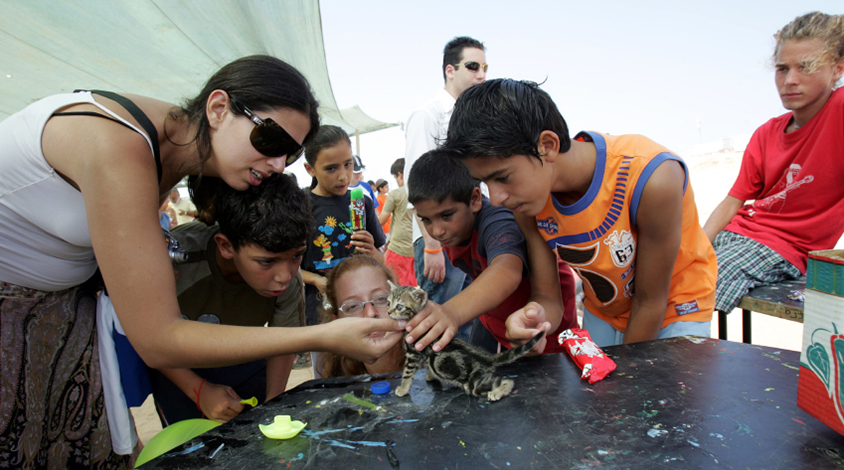
© iStockphoto.com / EdStock
THIS ARTICLE IS MORE THAN FIVE YEARS OLD
This article is more than five years old. Autism research — and science in general — is constantly evolving, so older articles may contain information or theories that have been reevaluated since their original publication date.
Trying to do autism research in the Gaza Strip, one of the most politically unstable regions in the world, is an exercise in patience, perseverance — and plenty of courage. As a team of Palestinian researchers discovered, gaining access into the region isn’t even guaranteed.
Just 25 miles long and 7.5 miles wide at its widest point, the Gaza Strip has been a hot zone for conflict in the Middle East for decades. Nearly two-thirds of the population are registered United Nations refugees, and a 2012 World Health Organization study found rampant malnutrition among its denizens.
As with most conflict zones, the Gaza Strip offers little in the way of health services.
Palestinian researcher Mohammed Habash and his colleagues estimate that the refugee camps are home to 178,000 school-age children. Applying the global prevalence rate for autism, about 2,700 children would be expected to have the condition. But only 547 children have a confirmed diagnosis by a clinician — and fewer than half of them receive any services, the team found. Habash presented the results today at the 2016 International Meeting for Autism Research in Baltimore.
“The problem really is not doing the study for prevalence, or getting children assessed and diagnosed; it is that nothing happens after that,” says Habash, a research adviser with the Gaza Community Mental Health Programme, a research organization based in Gaza. “There are no resources, no services and nothing for them.”
Habash identified eight institutions that provide autism services, but their offerings are “sporadic” and “lacking structure,” he says. They rely on part-time or contract workers who flow in and out of the region depending on which projects are funded. The only private institution in the region, Irada, costs twice as much as the average middle class family’s wages and has only a handful of spots available, Habash says.
Stigma prevails:
Location is also an issue. Most services are in the center of the Gaza Strip, so refugees farther north have little to no access. The handful of medical centers supported by the United Nations are overburdened with caring for the growing refugee population.
Beyond all this, scientists must also contend with parents’ attitudes toward their child’s condition. About 15 percent of parents told the researchers they thought autism is a consequence of the war between Palestine and Israel. Less than 10 percent said the cause is genetic — about the same number as thought watching television is the primary cause. The greatest proportion, 40 percent, said they didn’t know.
“Autism is still regarded as a form of mental illness or mental retardation,” says Habash. Culturally, he says, people in the Gaza Strip don’t understand the concept of chronic health conditions: They think of conditions as either terminal or curable.
Clinicians tend to hand out diagnoses along with prescriptions for antidepressants, antipsychotics and supplements in the hopes of ‘curing’ people. The few parents who have some money send their children to Jordan or another neighboring country for experimental treatments such as stem cell therapy. “It is a dubious process,” Habash says.
He and his colleagues tried to return to Gaza last year to conduct follow-up research but were barred from entering the region. Still, he says, he will keep trying.
“I grew up there, I’m still related to people there — my father and my brother are still there,” he says. “I see the struggle these people have firsthand. They have nothing.”
For more reports from the 2016 International Meeting for Autism Research, please click here.
By joining the discussion, you agree to our privacy policy.